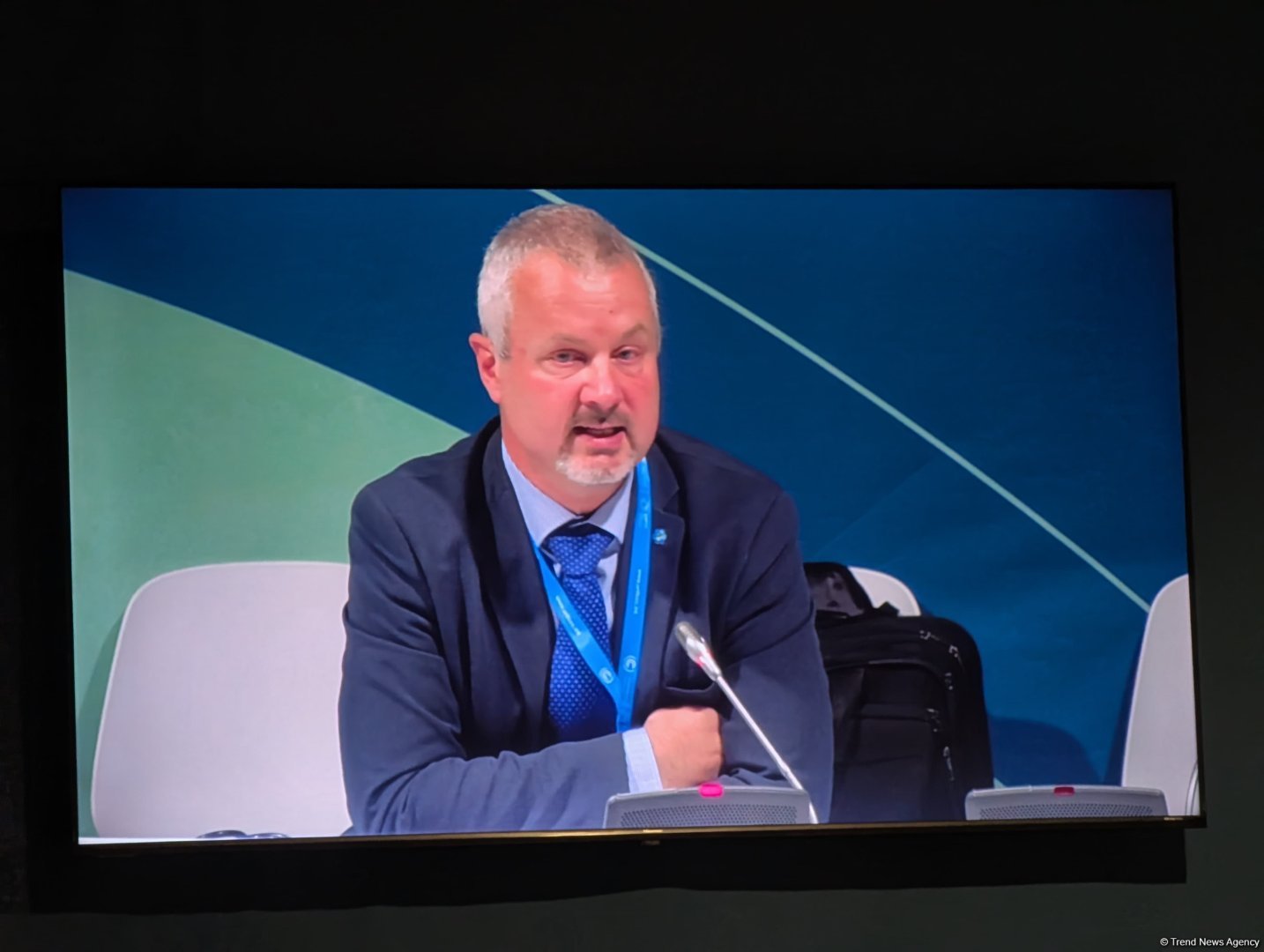BAKU, Azerbaijan, November 18. The 2050 target outlined in the climate law and under the EU emissions trading system, free quotas will be phased out starting December 31, 2039, said Marco Mensink, Director General of the European Chemical Industry Council (Cefic), at a panel discussion on "Accelerating global industrial and energy decarbonization – a growth/economic modernization agenda," Trend reports.
Mensink emphasized the challenges and necessary steps for the industrial sector in achieving decarbonization.
“Earlier, on February 20 this year, five sectors informed the EU that the Green Deal was lacking a crucial component—how the industry can practically implement it. The key for us in decarbonization is maximizing the use of renewable electricity, and we are aligned on that point.
However, the second critical issue is infrastructure—how to deliver electricity to businesses. In practical terms, we need support in both electricity supply and infrastructure development. Furthermore, hydrogen cannot be produced without affordable electricity, as it would become too expensive to use for decarbonization. First, we need the electricity, then we can focus on hydrogen," he added.
To note, the 29th session of the Conference of the Parties to the UN Framework Convention on Climate Change (COP29), which will run until November 22, opened at the Baku Olympic Stadium on November 11. It is the largest event organized by Azerbaijan to date, and the first time in the region that it is being held in Azerbaijan.
Within COP29, the highest level event - the summit of world leaders on climate action – was held on November 12–13.
The main expectation from COP29 is to agree on a fair and ambitious New Collective Quantitative Goal (NCQG) on climate finance. The COP29 chairmanship has launched 14 initiatives that include linkages between climate action and the Sustainable Development Goals, including green energy corridors, green energy storage, harmony for climate resilience, clean hydrogen, methane reduction in organic waste, action on green digital technologies, and other topics.
In addition to being a top priority that creates the conditions for action, creating climate finance will also help fulfill the 1.5°C pledge by bringing everyone together.
The UN Framework Convention on Climate Change is an agreement signed at the Rio Earth Summit in June 1992 to prevent dangerous human interference in the climate system. The acronym COP (Conference of Parties) stands for “Conference of Parties” and is the highest legislative body overseeing the implementation of the Framework Convention on Climate Change.
A total of 198 countries are parties to the Convention. Unless otherwise decided by the parties, COP is held annually. The first COP event was held in March 1995 in Berlin, and its secretariat is located in Bonn.
Stay up-to-date with more news on Trend News Agency's WhatsApp channel







